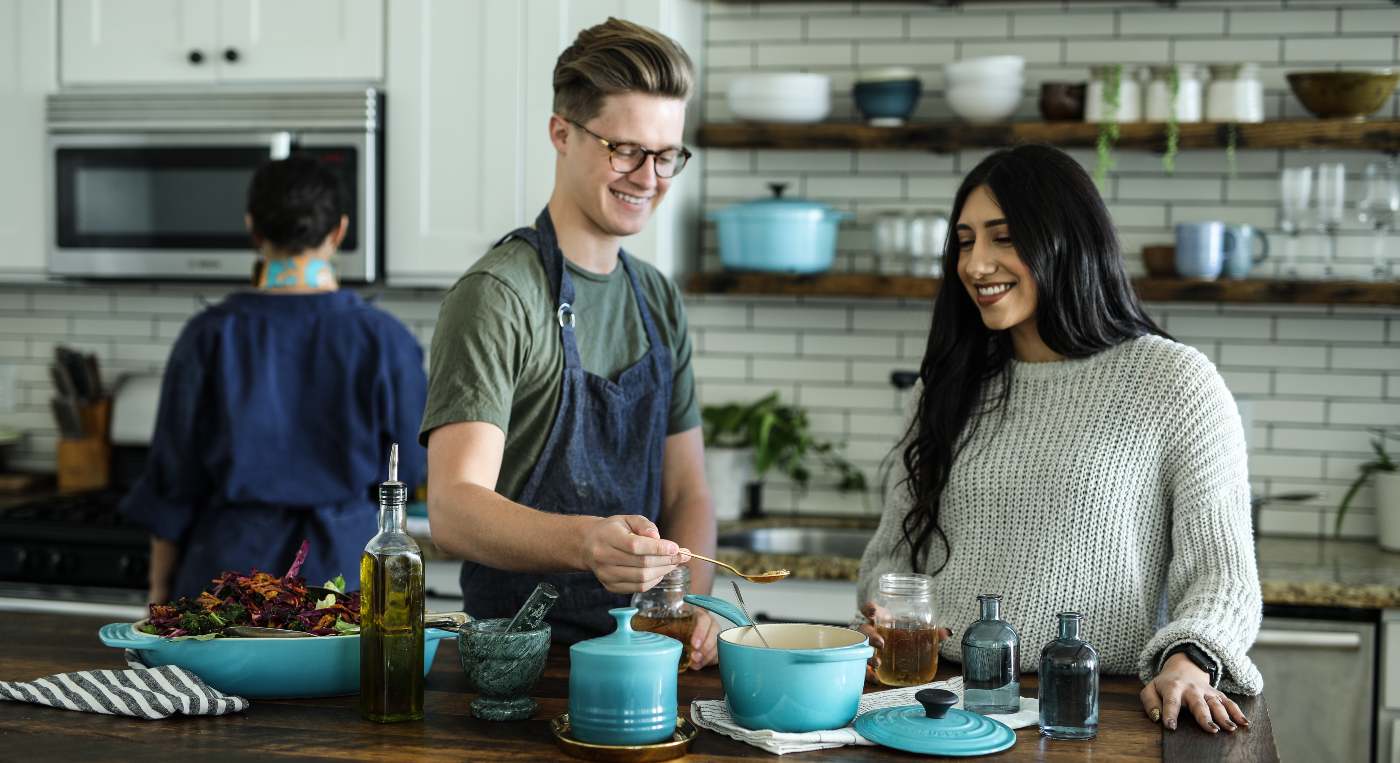In a large study in Australia, a seven-week cooking class was found to significantly improve mental health and well-being, physical health markers, confidence and life satisfaction—as well as the ability to change eating habits.
These changes were not only seen in both men and women, but regardless of whether any increase in understanding of nutrition and the risks of obesity was obtained during the course.
It suggests that simply by returning to home-cooked meals, society could greatly improve the overall health condition of its citizens.
The story of the decline in physical and mental health in the western world is well known. An emphasis on work and study leads to the consumption of less nutritious food, which has exploded in availability as the decades have advanced.
67% of all Australians are overweight or obese, the recently-published paper reveals, a figure which is nearly applicable to the American population.
An international team of researchers aimed to investigate if a course of seven, 90-minute cooking classes could improve health outcomes by restoring confidence in people’s ability to cook for themselves at home.
RELATED: This Lizard Has His Own Cookbook – and it’s Utterly Adorable
“The intervention involved participation in weekly cooking sessions… delivered by a nutrition professional from the fully equipped JMOF mobile kitchen,” the study reads.
“The 90-min hands-on cooking session used a new recipe each week to scaffold learning of skills and knowledge about nutritious foods, to enable increased cooking confidence, skill development and food literacy knowledge. In addition, the participants were taught knife handling skills and were given tips and advice about healthy options for how to boost flavor and create dishes using fresh foods to replace pre-prepared ingredients. Food-budget planning, kitchen economy and reduction of food waste were also covered.”
Something deeper
The study details that many researchers have imagined that food literacy is linked to higher education, higher incomes, and value of real estate: i.e. that only rich white folks understand why cooking with vegetables is advantageous from a health perspective.
MORE: IKEA’s New Cookbook Puts Kitchen Scraps to Good Use With 50 Recipes From Top Chefs
In this large and diverse population sample, consisting of many education and income levels, no socio-economic factor drove the desire to learn from—or the benefits from participating in—a home-cooking class. The authors report similar incidents in three other published trials of a similar kind.
Six months after the classes, the participants, 32% of whom had scores for general health, mental health, and subjective vitality lower than the national average, all reported significant improvements.
A limitation of the study, the authors note, could be that as the class was a group activity, it was simply the result of doing something constructive together with other people that resulted in the benefits.
However, as the improvements in mental and physical well-being were observed months after the classes concluded, one can suppose it’s due more to the deployment of the knowledge gained in the kitchen over the subsequent weeks—and perhaps even the juxtapositions of more time with family and friends over cooked meals.
SERVE UP a Portion of the Good News by Sharing This Story…




















